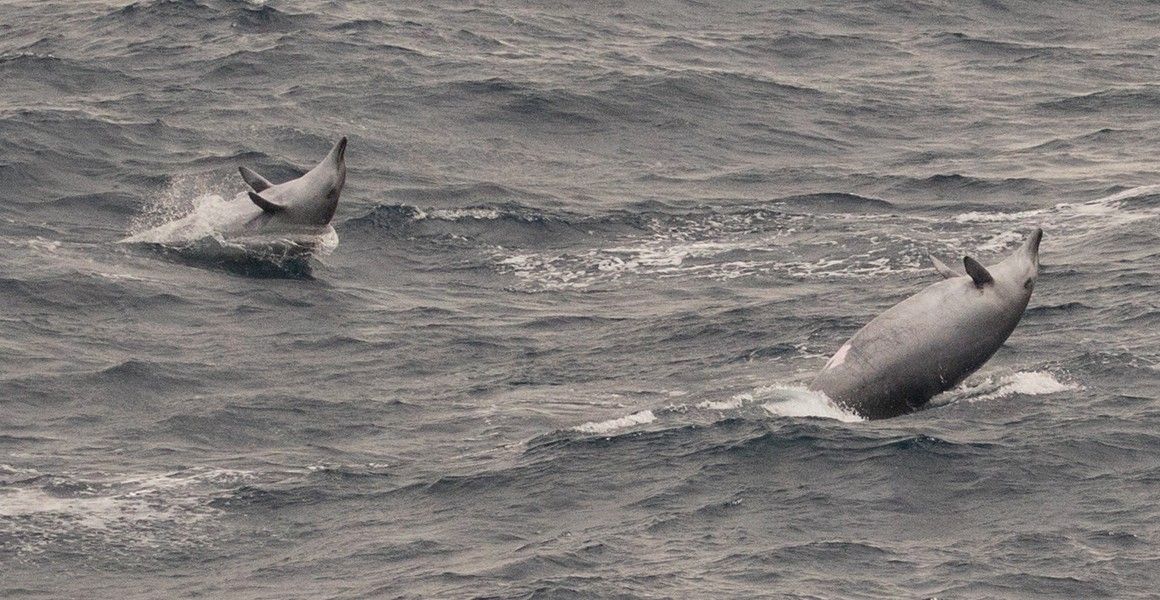First confirmed sighting of a True's beaked whale in the North-east Altantic.
One of the world's rarest cetacean species has been confirmed present in the North-east Altantic with the first live sighting now on record.
Beaked whales are one of the least known groups of marine mammals. They live at extreme depths in the open ocean and are rarly observed.
The True's beaked whale ( Mesoplodon mirus)
are one of 22 species of beaked whale that inhabit the world's oceans, and beacuse of their life history strategies, i.e. spending more tha 90% of their time below the surface of the water, very little is kown about them. Beaked whales can also dive for very long periods of time, - up to 2 hours. So when they surface, it is very brief, so even when these whales are sighted they are extrememly difficult to identify. To date our understanding of True's beaked whales in the North Atlantic has been reliant on stranding records of the species.
Now a study published in PeerJ
,
by lead author James, R. Robbins, carried out a survey of the Bay of Biscay with the help of volunteers and recorded a group of beaked whales breaching along side a ferry. There had been sightings before but until now they had not been verified as other species of beaked whale such as Cuvier's were also known to frequent the area. The Bay of Biscay is one of the best places in Europe to see whales and dophins.
During the encounter they managed to capture images of at least four different individuals and these were then analysed by multiple experts. It was then confimed that they had seen one of the rarest species in the world - the True's beaked whale.
In-fact, these images are thought to be some of the best in the world of True's beaked whale. Also one individual in the images showed an interesting anatomical characteristic; an extra pair of teeth or tusks. Beaked whales can be identified by their tusks, or the single pair of teeth in their bottom jaw. While the teeth remain within the gum of the females, the males teeth erupt and may serve in competiion for other female mates. The position of the tusks on the lower jaw can help identify the species. For example. True's beaked whale tusks are positioned at the very tip of the lower jaw. What was unusual about this studies findings is that one individual photographed has two pairs of teeth on the lower jaw.
To understand if this was an anomoly, a co-author of the study and PhD student examined museum specimens of True's beaked whales but found no evidance of a second tooth pair in any of the previously recorded specimens. So this may be a mutation and not commonly seen, but given we know so little about the species, it may just be it has never been seen before, but certianly highlights how little we really know about these deep diving cetaceans.
© Ocean Research & Conservation Ireland (ORCireland) and www.orcireland.ie , est. 2017. Unauthorized use and/or duplication of this material without express and written permission from this site’s author and/or owner is strictly prohibited. Excerpts and links may be used, provided that full and clear credit is given to Ocean Research & Conservation Ireland and www.orcireland.ie with appropriate and specific direction to the original content.
References:
Robbins JR, Park T, Coombs EJ. 2019. Supernumerary teeth observed in a live True’s beaked whale in the Bay of Biscay. PeerJ 7:e7809.
SHARE THIS ARTICLE














